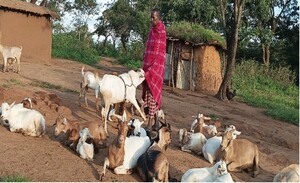
Institutional Capacity Assessment Report for Rangeland Management in Arbahajan Ward, Wajir West Subcounty, Wajir County, Kenya
Abstract
Arbahajan Ward in the Wajir West subcounty in Kenya is predominantly comprised of pastoralist communities who are highly dependent on rangeland resources. Traditional mechanisms, facilitated through an organized traditional unit, have been the cornerstone of natural resource management. The Rangeland Management Institution (RMI) is a diverse body of men, women, youth, and religious leaders overseeing resource management. Government representatives, including chiefs, ward administrators and the town administrator play roles in the RMI as ex-officio members. The ICAT assessment process involves several steps to evaluate the governance status of RMIs and facilitate subsequent improvements. Initially, the ICAT assessment serves as a monitoring tool, typically administered externally by a participatory rangeland management (PRM) facilitator. This assessment is conducted through focus group discussions involving diverse community members, including those involved in the RMIs.
Citation
Mukalo, I. A. 2024. AICCRA report: Institutional Capacity Assessment Report for Rangeland Management in Arbahajan Ward, Wajir West Subcounty, Wajir County, Kenya. Accelerating Impacts of CGIAR Climate Research for Africa (AICCRA).







